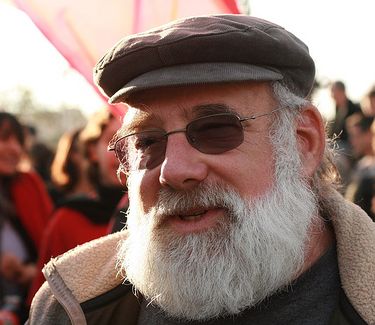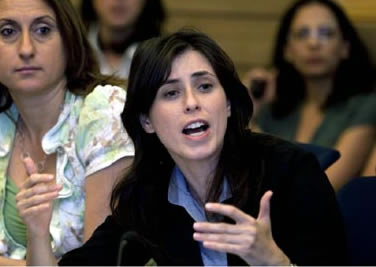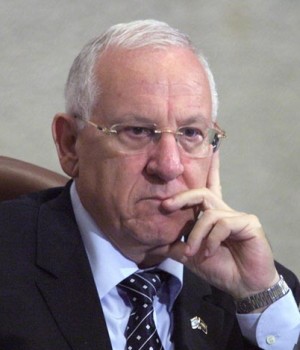On July 6, 2010, a month before Tony Judt died and shortly after Israel’s deadly attack on the Mavi Marmara, he was interviewed by Merav Michaeli, a columnist for Ha’aretz.
Merav Michaeli: How do you see Israel’s actions in the Flotilla affair?
Tony Judt: The characterization that comes to mind is “autistic.” Israel behaved in a way that suggests it is no longer fully able to estimate, assess or understand the way other people think about it. Even if you supported the blockade (I don’t) this would be an almost exemplary case of shooting oneself in a painful part of the anatomy.
Firstly because it alienates Turkey, who Israel needs in the longer run. Secondly because it was undertaken in international waters and largely at the expense of civilian victims. Thirdly because it was an overreaction. Fourthly because it had the predictable effect of weakening the case for a blockade rather than strengthening it.
In short, this is the action of a country which is fast losing touch with reality.
Michaeli: The raid on the flotilla was far from being the worst of Israel’s behavior over 40 years of occupation, yet the international response to it was the most grievous. Why do you think that is?
Judt: I agree. But what happens in small West Bank towns, in the Israeli Parliament, in Gazan schools or in Lebanese farms is invisible to the world. And Israel was always very good at presenting the argument from “self-defense” even when it was absurd. I think that Israel’s successful defiance of international law for so long has made Jerusalem blind and deaf to the seriousness with which the rest of the world takes the matter.
Finally there is the question of cumulation. From the Six Day War to Lebanon, from Lebanon to the settlements, from the settlements to Gaza, Israel’s credibility has steadily fallen – even as the world’s distance from Auschwitz (the favorite excuse) has lengthened. So Israel is far more vulnerable today than it would have been twenty five years ago.
Michaeli: What do you tell those who say Israel has willingly withdrawn from Gaza and everything that has happened since proves the Israeli claim that there’s no partner for an agreement?
Judt: I tell them that they are talking nonsense, or else prevaricating. Israel withdrew from Gaza but has put it under a punishment regime comparable to nothing else in the world. That is not withdrawal. And of course we all know that there are those who would like to give Palestinians “independence” but exclude Gaza from the privilege. That too was part of the purpose of the withdrawal.
There is a partner. It may not be very nice and it may not be very easy. It’s called Hamas. In the same way the provisional [Irish Republican Army] was the only realistic “partner for peace” with whom London could negotiate; Nelson Mandela (a “terrorist” for the Afrikaaners until his release) was the only realistic “partner for peace”; the same was true of “that terrorist” ([according to Winston] Churchill) Gandhi; the well-known “murderous terrorist” Jomo Kenyatta with whom London fought a murderous war for five years before he became “a great statesman”; not to mention Algeria. The irony is that Washington knows this perfectly well and expects negotiations with Hamas within five years. After all, Israel virtually invented Hamas in the hope of undermining the PLO; well, they succeeded. But they are the only ones who can’t see what has to happen.

 Halper would be happy living in a democracy with Palestinians. I asked him why so many Israelis don’t feel that way.
Halper would be happy living in a democracy with Palestinians. I asked him why so many Israelis don’t feel that way.  The most pressing problem with the settlements is not that they are obstacles to a final peace accord, which is how settlement critics have often framed the issue. The danger is that they will doom Zionism itself.
The most pressing problem with the settlements is not that they are obstacles to a final peace accord, which is how settlement critics have often framed the issue. The danger is that they will doom Zionism itself. On the other side of the debate are Israelis such as Naftali Bennett, Benjamin Netanyahu’s former chief of staff and the recently named director-general of the settler advocacy group the Yesha Council.
On the other side of the debate are Israelis such as Naftali Bennett, Benjamin Netanyahu’s former chief of staff and the recently named director-general of the settler advocacy group the Yesha Council. This is Tzipi Hotovely from Likud, the youngest member of the Knesset and a proponent of some radical rethinking on the Israeli-Palestinian conflict. “The taboo that forbids talk about any option other than the two-state solution is almost anti-democratic. It’s like brain-gagging,” says Hotovely.
This is Tzipi Hotovely from Likud, the youngest member of the Knesset and a proponent of some radical rethinking on the Israeli-Palestinian conflict. “The taboo that forbids talk about any option other than the two-state solution is almost anti-democratic. It’s like brain-gagging,” says Hotovely. Knesset Speaker Reuven Rivlin said Thursday that he would rather accept Palestinians as Israeli citizens than divide Israel and the West Bank in a future two-state peace solution.
Knesset Speaker Reuven Rivlin said Thursday that he would rather accept Palestinians as Israeli citizens than divide Israel and the West Bank in a future two-state peace solution. 